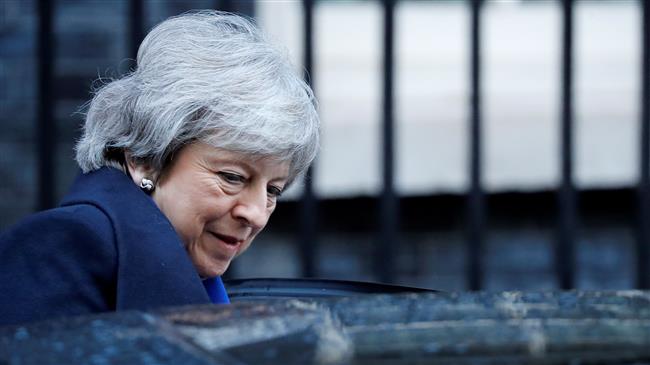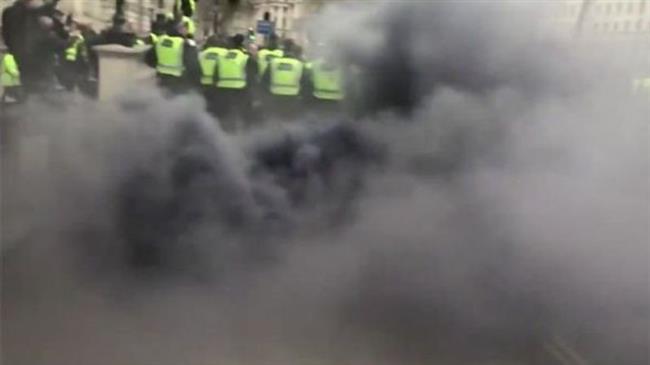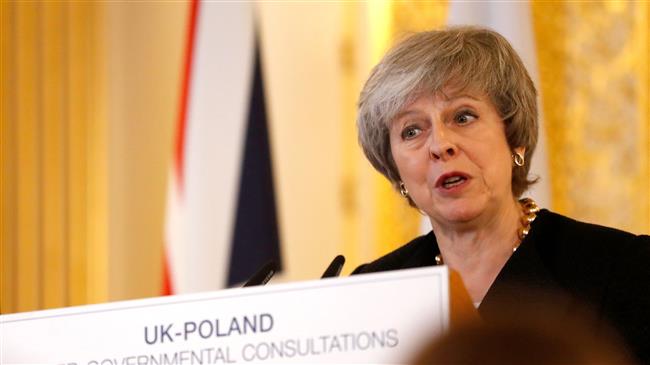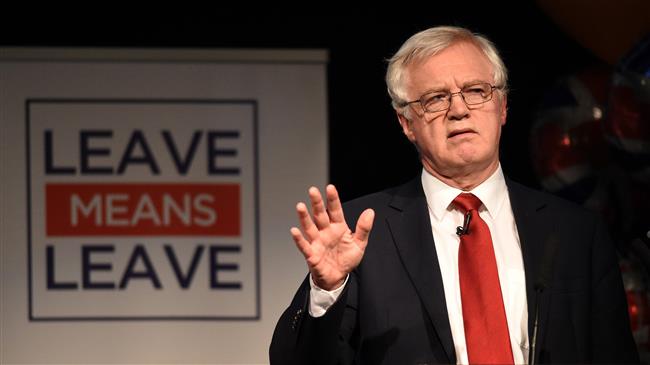UK PM warns Brexit can be cancelled if parliament rejects her deal
British Prime Minister Theresa May has warned that growing criticism of her European Union withdrawal agreement and opponents’ attempt to discard it in a parliamentary vote this month would finally lead to the cancellation of a 2016 popular decision to leave the bloc.
“Don’t let the search for the perfect become the enemy of the good, because the danger there is actually we end up with no Brexit at all,” May told BBC on Sunday, while speaking about a planned vote in the House of Commons in mid-January on her Brexit deal.
The premier said Britain would be in "uncharted territory" if the Commons reject the Brexit agreement she signed with the EU in November, a situation that she warned was going to have unknown consequences for the country.
“We’re going to be in uncharted territory. I don’t think anybody can say exactly what will happen in terms of the reaction we’ll see in parliament,” said May, who has been struggling over the Christmas time to win over critics of the her Brexit agreement.
The PM again rejected calls for a fresh Brexit referendum that could allow Britain to stay in the EU.
“Practically, actually you couldn’t get a referendum in time before the 29th of March - you’d be talking about extending Article 50,” she said while referring to Britain’s official departure date from the EU and a clause in EU’s Lisbon treaty which allowed London to trigger Brexit two years ago.
@theresa_may has told the @BBCNews @BBCPolitics that the vote on 'her' deal will go ahead, not the referendum we voted on that didn't have a deal attached that leave won but 'her' deal, the one that keeps is shackled to the corrupt EU.
— Phil Hornby - Countdown to Brexit - May must go. (@PHIL_BERT) January 6, 2019
May’s comments come as many still think she would finally fail to go through the parliament with her Brexit deal. The premier delayed an original vote in the parliament in early December out of fears she would lose over a controversial clause in the withdrawal agreement that concerns the future of the Irish border.
The deal's opponents say the so-called “backstop” clause undermines the UK’s sovereignty because it effectively separates Northern Ireland from the mainland Britain.
The EU insists it should be able to include Northern Ireland in its customs union and move the border to the Irish Sea until a mechanism is found for bilateral trade.
There are several scenarios awaiting Britain in March if the Commons reject May’s Brexit deal with the most probable being a disorderly exit, or what has been called a no-deal Brexit.
May, who has repeatedly reiterated that her government would be ready to bring the UK out of the EU with no agreement, did not directly respond to a BBC question on whether she was leading the country toward a no-deal Brexit.
However, British health Minister Matthew Hancock said Sunday that chances for May to win the parliament’s vote had increased.
“I certainly hope that the chances of the deal going through have improved. I think if people (MPs) have gone back to their constituencies, as I have, and talked to normal people then they will have found an overwhelming sense of ‘please can we just get on with it’,” Hancock said in a Sky News interview.
The comments on political uncertainty surrounding Brexit came after results of a fresh poll published on Sunday showed that most of Britons were in favor of remaining in the EU.
VIDEO | Press TV's news headlines
Iran says Christmas opportunity to remind ourselves of Jesus Christ call for 'justice, peace'
VIDEO | Eyewitness video shows moment of plane crash in Kazakhstan
VIDEO | Lebanese Christians celebrate Christmas over ruins
Iran FM: ‘Too early’ to predict Syria’s future for those thinking ‘victories’ achieved
The big role of steel industry in Iran’s development
Yemen fires second hypersonic missile at Israeli targets in as many days
UK suspends 6,500 Syrian asylum claims after Assad's fall















 This makes it easy to access the Press TV website
This makes it easy to access the Press TV website